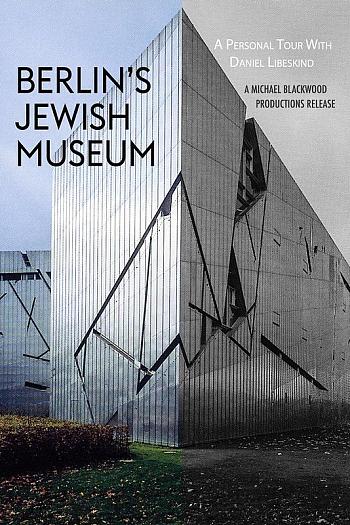
Berlin’s Jewish Museum: A Personal Tour With Daniel Libeskind
| 导演: | Michael Blackwood |
| 主演: | Bernard Tschumi |
| 制片国家/地区: | 美国 |
| 类型: | 纪录片 |
| 语言: | 英语 |
| 年代: | 2000 |
| 片长: | 58 min. |
| 豆瓣评分: | 0 |
| IMDB: | 0 |
| 影伴评分: | 0 |
剧情简介
The Jewish Museum in Berlin is an extraordinary, haunting building – a zig-zag form reflecting an invisible matrix of addresses of Jewish Berliners who once lived in the area. The building, which took ten years to complete, was the first commissioned work for the now-renowned Daniel Libeskind, whose thoughtful and symbolical approach to architecture shines through, both in this... (展开全部)
The Jewish Museum in Berlin is an extraordinary, haunting building – a zig-zag form reflecting an invisible matrix of addresses of Jewish Berliners who once lived in the area. The building, which took ten years to complete, was the first commissioned work for the now-renowned Daniel Libeskind, whose thoughtful and symbolical approach to architecture shines through, both in this interview as well as in his work itself.
Libeskind’s concept for the new wing was intentionally so incompatible with the adjacent baroque Berlin Museum that there was no way to connect them above ground. To arrive in the Jewish Museum, visitors must enter through the 18th-century building and descend to underground passageways and “voids,” which in themselves give a strong sense of the tragic fate of the German-Jewish population during the Hitler years, even without any exhibitions in place. New York Times journalist, Alan Riding, gives an earnestly inquisitive interview as Libeskind leads the two of them through halls and vaults of the museum, whose labyrinthine layout, angular symbolism, and calculated use of natural light, is captured by the distinctively unobtrusive eye of director Michael Blackwood.
During this hour-long feature, Libeskind lays bare the entire architectural and philosophical concept for an absolutely unique construct of innovation and intellectual prowess. The resulting building not only holds direct allusions to the lives and work of Berlin’s pre-Nazi population of Jewish literati and artists, such as Walter Benjamin and Arnold Schönberg, but provides a space through which the future of Berlin and the Jewish community there can continue to re-establish itself.
The Jewish Museum in Berlin is an extraordinary, haunting building – a zig-zag form reflecting an invisible matrix of addresses of Jewish Berliners who once lived in the area. The building, which took ten years to complete, was the first commissioned work for the now-renowned Daniel Libeskind, whose thoughtful and symbolical approach to architecture shines through, both in this... (展开全部)
The Jewish Museum in Berlin is an extraordinary, haunting building – a zig-zag form reflecting an invisible matrix of addresses of Jewish Berliners who once lived in the area. The building, which took ten years to complete, was the first commissioned work for the now-renowned Daniel Libeskind, whose thoughtful and symbolical approach to architecture shines through, both in this interview as well as in his work itself.
Libeskind’s concept for the new wing was intentionally so incompatible with the adjacent baroque Berlin Museum that there was no way to connect them above ground. To arrive in the Jewish Museum, visitors must enter through the 18th-century building and descend to underground passageways and “voids,” which in themselves give a strong sense of the tragic fate of the German-Jewish population during the Hitler years, even without any exhibitions in place. New York Times journalist, Alan Riding, gives an earnestly inquisitive interview as Libeskind leads the two of them through halls and vaults of the museum, whose labyrinthine layout, angular symbolism, and calculated use of natural light, is captured by the distinctively unobtrusive eye of director Michael Blackwood.
During this hour-long feature, Libeskind lays bare the entire architectural and philosophical concept for an absolutely unique construct of innovation and intellectual prowess. The resulting building not only holds direct allusions to the lives and work of Berlin’s pre-Nazi population of Jewish literati and artists, such as Walter Benjamin and Arnold Schönberg, but provides a space through which the future of Berlin and the Jewish community there can continue to re-establish itself.




